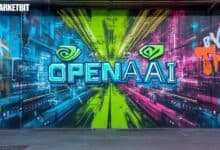Crypto
1 hour ago
UK Police Arrest Five in Major Crypto Fraud Case
UK fraud losses hit £629M due to AI scams; five arrests made in crypto fraud…
DeFi
3 hours ago
BlackRock Deploys $500M on Aptos Network
BlackRock extends its tokenized asset push with a $500 million deployment on the Aptos network,…
Ethereum
4 hours ago
Ethereum Stability and Institutional Confidence
An analysis of Ethereum's stability above realized value and the significance of new liquidity and…
Business
6 hours ago
Plasma Secures Italian VASP, Expands in Europe
Plasma acquires Italian VASP license and opens Amsterdam office, expanding EU operations.
Crypto
7 hours ago
Ledger Unveils Nano Gen5 with Advanced Security Features
Ledger Nano Gen5 launches with advanced crypto custody and digital identity tools, enhancing security and…
Crypto
9 hours ago
Turkey Leads MENA in Cryptocurrency Transactions
Turkey has led the MENA region in cryptocurrency transactions, totaling $200 billion, driven by speculation…
Crypto
10 hours ago
Trump Pardons Binance Founder, CZ, Marking Policy Shift
Donald Trump pardons Binance's CZ, signaling a shift in U.S. crypto policy.
Business
12 hours ago
Canada Fines Crypto Firm $126 Million for Violations
Canada imposes a record $126 million fine on Xeltox Enterprises Ltd. for regulatory breaches.
DeFi
13 hours ago
Institutional Treasury Shifts Spark Move to Regulated DeFi
Spark Protocol reallocates treasury assets into regulated DeFi products, influencing market trends and digital asset…
Crypto
15 hours ago
Solana Integrates NIST-Standard Post-Quantum Cryptography
Solana is the first major blockchain to adopt NIST-standard PQC, enhancing security against quantum threats.
$ 111,143.78

Bitcoin (BTC)
1h0.11%
24h1.48%
USD
EUR
GBP



























